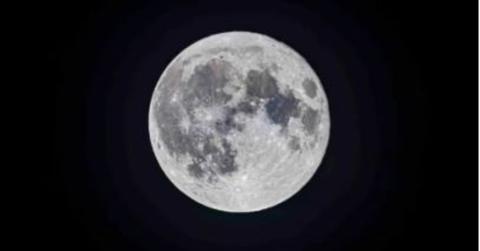Moon Farming Magic: Researchers Grow Crops in Simulated Lunar Soil

The secrets of the solar system's past may be held in mini-moons, researchers say.
New research conducted in Texas suggests that gardening on the moon might not be as far-fetched as it sounds.
Unlike Earth, the moon lacks the nutrient-rich soil necessary for traditional plant growth. However, Jessica Atkin, a graduate student at Texas A&M University, and her colleague from Brown University, Rhode Island, devised a method to cultivate crops using simulated "moondust."
Rather than relying on organic material found in Earth's soil, Atkin and her team experimented with small moondust particles, enhancing them with “soil amendments” such as soil fungi and worm manure, scientifically known as "vermicompost."
The resulting mixture proved capable of supporting the growth of chickpeas, a protein-rich crop that requires less water and nitrogen compared to other food crops, AgriLife Today reported.
According to Atkin, chickpeas could potentially thrive in up to 75% simulated moondust, albeit with a longer maturation period of 120 days, compared to 100 days in Earth soil.
To expedite the process, Atkin suggests introducing "red wiggler worms," a type of earthworm, to aid in dust development through vermiculture, which could be conducted in space environments like a space station or on the moon, reducing the reliance on resupply missions from Earth.
However, lunar gardening comes with its own set of challenges, including reduced gravity, radiation exposure and the presence of toxic elements.
Russian researchers are also exploring lunar soil utilization but with a different approach, aiming to transform moondust into soil using a robotic printer, Tass reported.
Never miss a story — sign up for the Front Page Detectives newsletter. Be on the scene the moment news breaks.
This technology would require the installation of a module on the moon equipped with an inflatable dome to protect against radiation and meteor strikes.
Despite these advancements, the journey to establish lunar agriculture is fraught with uncertainties, as evidenced by a Russian spacecraft's crash landing on the moon in 2023.
Nevertheless, ongoing research and technological innovations offer hope for the possibility of sustainable gardening beyond Earth's confines.
Become a Front Page Detective
Sign up to receive breaking
Front Page Detectives
news and exclusive investigations.
